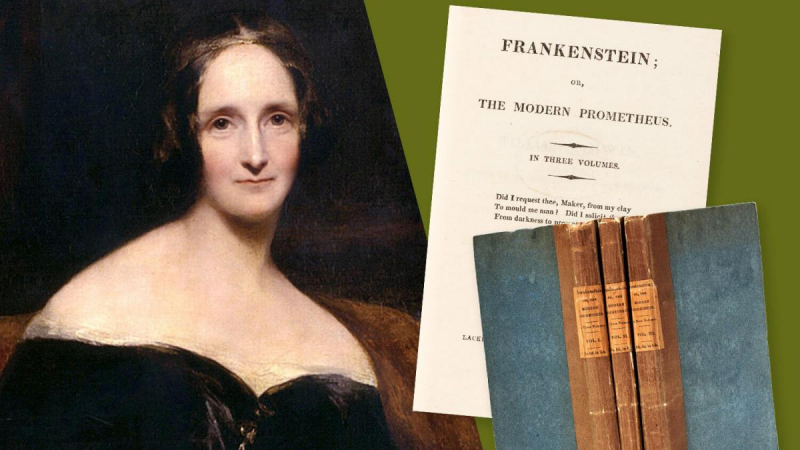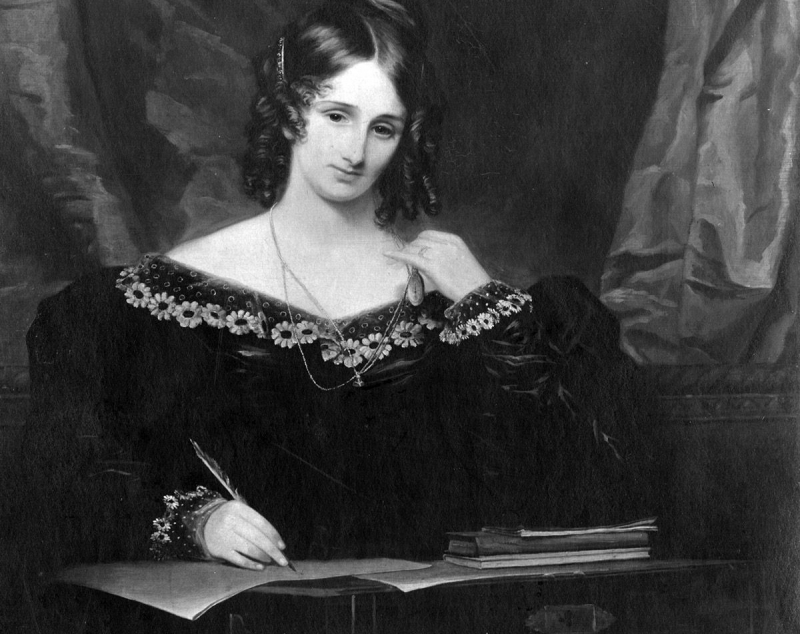Mary Shelley

Mary Wollstonecraft Shelley, née Mary Wollstonecraft Godwin, was an English Romantic novelist best known for writing Frankenstein. She was born on August 30, 1797, in London, England, and died on February 1, 1851, in London.
She met the young poet Percy Bysshe Shelley in 1812 and eloped with him to France in July 1814. She was the only daughter of William Godwin and Mary Wollstonecraft. After Shelley's first wife committed suicide, the two married in 1816. She returned to England after her husband's death in 1822 and dedicated herself to disseminating Shelley's writings and educating their only child, Percy Florence Shelley. She published her late husband's Posthumous Poems (1824) and edited his Poetical Writings (1839), which included extensive and useful remarks, as well as his prose works. Her Journal is a rich source of Shelley's biography, and her letters are an indispensable adjunct.
Frankenstein or The Modern Prometheus (1818, revised 1831) is the best-known work of Mary Shelley, is a Gothic and philosophical novel that is also often regarded as an early form of science fiction. It depicts the horrifying consequences that follow a scientist's artificial creation of a human being. (The novel's man-made monster was based on a creature that appeared in a number of American horror films.) Valperga (1823), The Fortunes of Perkin Warbeck (1830), Lodore (1835), and Falkner (1837) are among her other books; The Last Man (1826), a portrayal of the human race's future extinction by a plague, is often regarded as her best work.
Nationality: U.K














